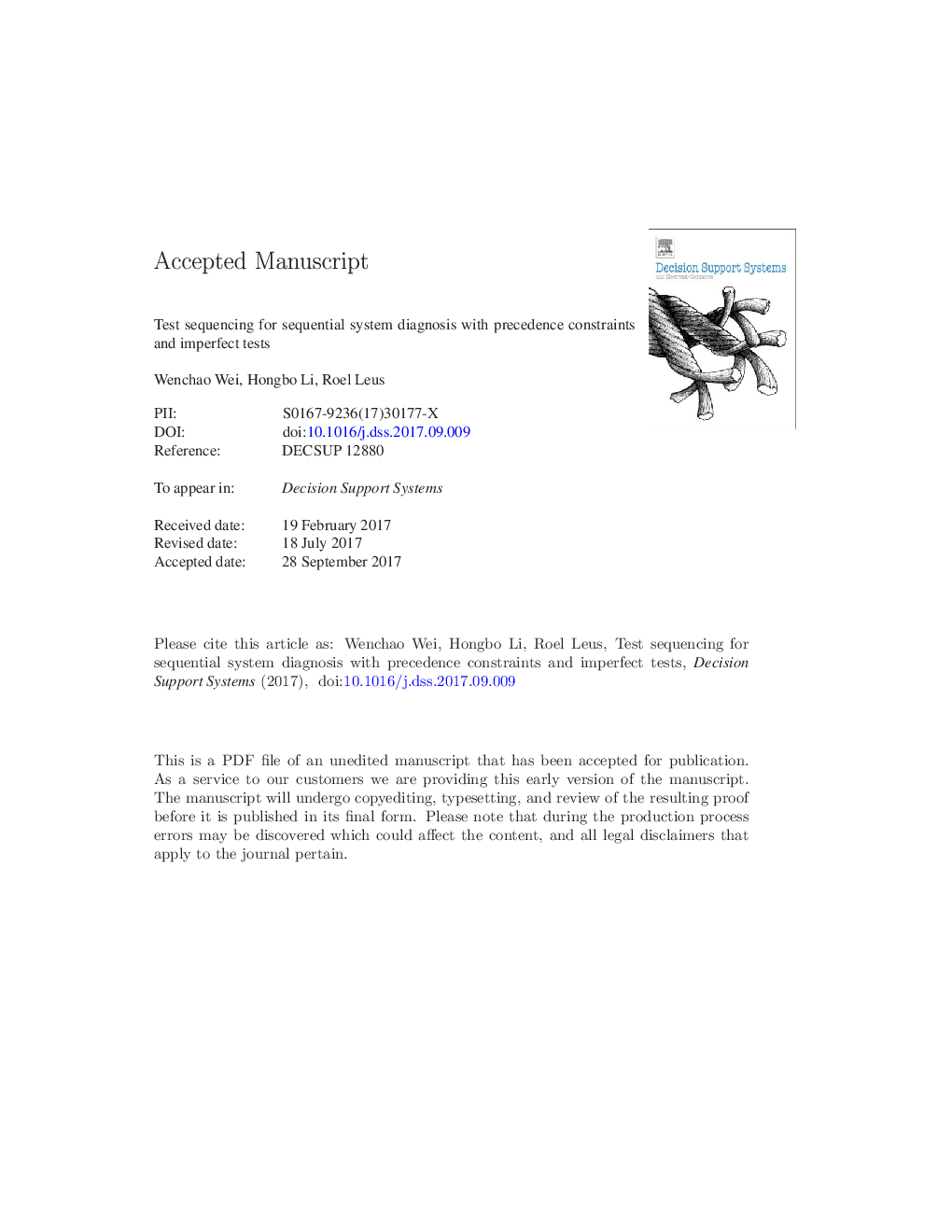| Article ID | Journal | Published Year | Pages | File Type |
|---|---|---|---|---|
| 6948441 | Decision Support Systems | 2017 | 36 Pages |
Abstract
We study sequential system testing with the objective of minimizing the total expected testing costs. The goal is to discover the state of a system that consists of a set of independent components. The state of the system depends on the states of the individual components and is classified as working if at least a pre-specified number of components are working, otherwise it is said to be down. During the diagnostic testing procedure, components are tested one by one, in a pre-specified order. The resulting test sequencing problem is NP-hard with general precedence constraints even when the tests are perfect, in which case a component test always reports the correct state of the component. In this work, we will also consider the additional complication that tests can be imperfect, meaning that a test can report a component to be working when it is actually down, and vice versa. We develop a tabu search algorithm together with a simulation-based evaluation technique that incorporates importance sampling to find high-quality solutions within limited runtimes.
Keywords
Related Topics
Physical Sciences and Engineering
Computer Science
Information Systems
Authors
Wenchao Wei, Hongbo Li, Roel Leus,
